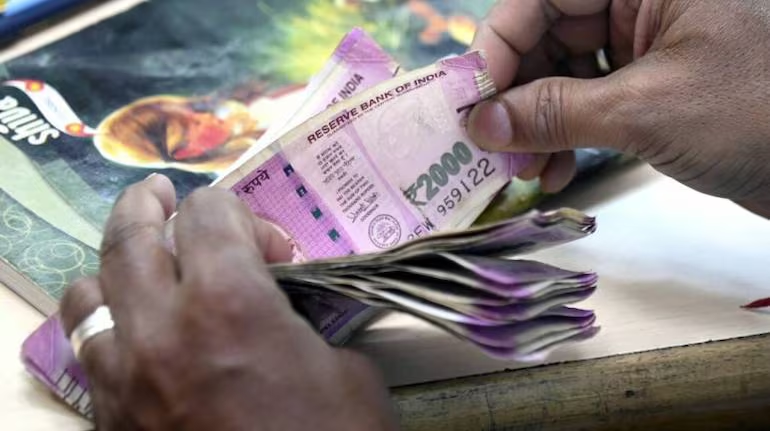With recent changes in the availability and acceptability of the 2000 rupee note in India, many people are curious about how to navigate this transition effectively. Here, we’ll dive into everything you need to know about exchanging 2000 notes, who is eligible, where to go, what identification is required, and the impact of these changes on both individuals and businesses.
1. Introduction to the Change Process for 2000 Notes
1.1 Overview of the 2000 Rupee Note Withdrawal in India
The 2000 rupee note, once introduced to curb the effects of black money in the economy, has recently been withdrawn as part of an economic policy aimed at modernizing currency circulation.
1.2 Reasons Behind the Withdrawal of the 2000 Note
The main reasons include curbing illicit cash flow, promoting digital payments, and encouraging more transparent financial transactions.
2. Eligibility Criteria for Exchanging 2000 Notes
2.1 Who Can Exchange 2000 Notes?
Any Indian citizen or foreign national with valid ID proof in India is eligible to exchange the 2000 rupee notes at specified banks and institutions.
2.2 Necessary Identification and Documentation
A government-issued ID, such as an Aadhaar card or passport, is essential for the exchange process, helping ensure that transactions are secure and traceable.
3. Steps to Exchange 2000 Notes in Banks
3.1 List of Participating Banks in India
Most major banks across India are facilitating the exchange process, including SBI, HDFC, ICICI, and others.
3.2 Step-by-Step Guide for Exchanging 2000 Notes at Banks
- Visit any designated bank branch.
- Fill out the required exchange form.
- Present valid ID proof.
- Submit the 2000 notes for exchange.
4. Alternative Methods for Changing 2000 Notes
4.1 Post Office Exchange Process
Select post offices offer a similar service, allowing individuals to exchange notes without visiting a bank.
4.2 ATM Withdrawal and Exchange Limitations
While ATMs do not dispense 2000 notes, they allow withdrawals in smaller denominations, offering an indirect solution.
5. Limits and Restrictions for 2000 Note Exchange
5.1 Daily and Monthly Exchange Limits
Individuals are typically limited to a certain amount per day and per month to prevent misuse and maintain availability for everyone.
5.2 Important Regulations to Keep in Mind
The RBI may set restrictions to regulate the currency exchange flow, ensuring a smooth transition.
6. Challenges in Exchanging 2000 Notes
6.1 Common Issues Faced During the Exchange Process
Queues, limited availability, and documentation issues are some challenges people might face.
6.2 How to Overcome Exchange-Related Problems
Arriving early, ensuring correct documentation, and verifying the exchange rules at your local bank can help overcome these issues.
7. Digital Alternatives to Cash Transactions
7.1 Using UPI and Digital Payments for Transactions
UPI platforms like Google Pay, Paytm, and PhonePe offer convenient, secure, and widely accepted transaction options.
7.2 Benefits of Moving to Cashless Payments
Switching to digital payments promotes safety, convenience, and improved financial transparency.
8. Impact on Businesses and Daily Life
8.1 Effects on Small Businesses and Vendors
Some small businesses may struggle initially but will ultimately benefit from more streamlined, cashless transactions.
8.2 Consumer Behavior and Spending Patterns
Consumers are likely to embrace cashless payments, influencing how they manage and spend money.
9. Safety Tips While Exchanging 2000 Notes
9.1 Security Tips for Handling Large Sums
Store exchanged notes securely and be cautious about sharing transaction details.
9.2 Avoiding Fraud During the Exchange Process
Always exchange notes through official channels to avoid fraud or counterfeit issues.
10. Future of Currency Reforms in India
10.1 Potential Changes in Indian Currency Policy
The government is expected to continue promoting digital finance and might introduce further reforms.
10.2 Future Outlook for Digital Currency in India
India’s ongoing exploration into digital currency could lead to the development of a national digital rupee.
11. FAQs on Changing 2000 Notes in India
11.1 What is the last date to exchange 2000 notes?
The RBI has set specific deadlines; check the official website for updates.
11.2 Can I exchange 2000 notes if I am a foreign national?
Yes, foreign nationals with valid ID can exchange 2000 notes in India.
11.3 Is there a fee for exchanging 2000 notes?
No, there is generally no fee for this service.
11.4 How many times can I exchange 2000 notes?
Typically, you can exchange once daily up to a certain limit.
11.5 What identification is required to exchange 2000 notes?
A government-issued ID is necessary for the exchange process.
11.6 Will I get smaller denomination notes in exchange?
Yes, smaller denominations like 500 and 100 rupee notes are provided in exchange.
12. Conclusion
Exchanging the 2000 rupee note in India is a straightforward process if you follow the guidelines provided by the RBI. With banks, post offices, and digital alternatives at hand, this transition highlights India’s shift towards a modern, cashless economy.
